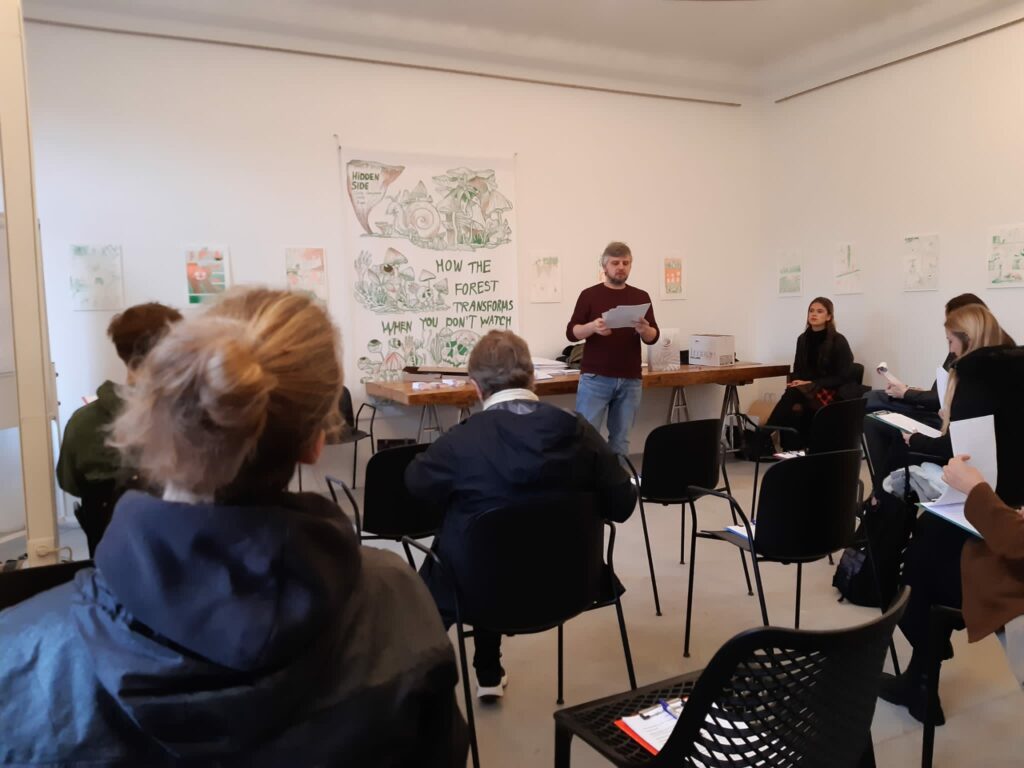
NBS comics – Nature to save the world
December 14, 2022
School club as a tool for development of engagement of both parents and children in Dražovce neighborhood
December 15, 2022Find out about the workshop ran in Riga by the University of Reading
Last November, the University of Reading organised a behavioural games workshop in Riga with the help of IN-HABIT’s local partners BSC, Riga Planning Region and Kalnciema Quarter. As simulations of real-world environment and situations, behavioural games are an important resource for the IN-HABIT project: they can help with the identification of any resistance to the solutions proposed by the project and support change among the local communities.
The workshop in Riga revolved around the implementation of a community stage near Agenskalns Market. The proposed idea is to use the stage for events promoting the integration of sexual minorities, and the goal of the behavioural games was to identify possible negative reactions from the local community..
Thanks to the efforts of the partners involved, the workshop ran smoothly and resulted in the overall satisfaction of those who participated. The data collected will be used to address any setbacks that might arise in the town.
Read the full article here.






